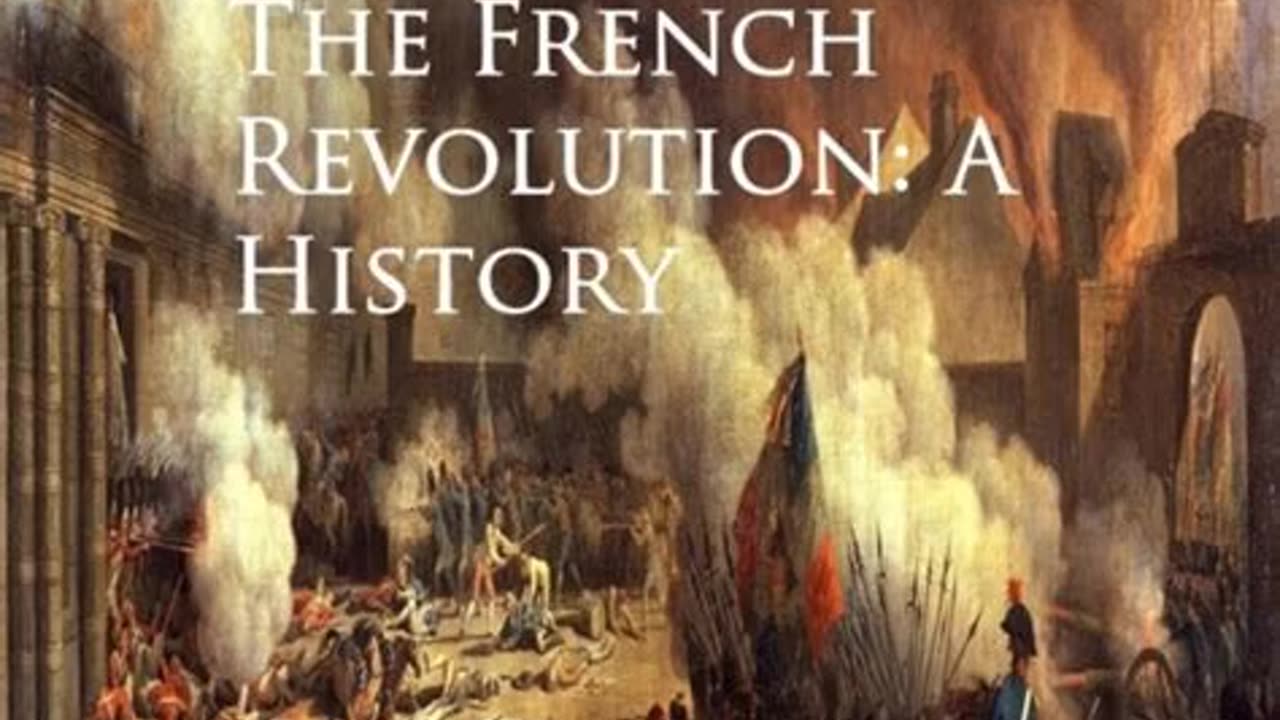Premium Only Content

The French Revolution - A History by Thomas Carlyle | Summary
Buy Here: https://amzn.to/3DOTs0w
""The French Revolution: A History"" is a historical work written by Thomas Carlyle, a Scottish historian and essayist, and was first published in 1837. Carlyle's account of the French Revolution is known for its literary style and unique interpretation of historical events. Here is a summary of the key points and themes explored in Thomas Carlyle's ""The French Revolution"":
1. The Background and Causes:
Carlyle sets the stage by providing the historical context and the factors that led to the French Revolution. He discusses the social, economic, and political conditions in France that contributed to the growing discontent among the common people and the weakening of the monarchy.
2. The Estates-General and the National Assembly:
The book covers the convening of the Estates-General in 1789, a representative assembly that included members from the three estates: the clergy, the nobility, and the common people. Carlyle explores the transformation of the Estates-General into the National Assembly, marking a significant step towards revolutionary changes.
3. The Storming of the Bastille:
Carlyle narrates the iconic event of the French Revolution - the storming of the Bastille prison on July 14, 1789. This event symbolized the people's uprising against royal authority and became a turning point in the revolution.
4. The Reign of Terror:
The biography delves into the radical phase of the revolution, marked by the rise of the Jacobins and the Committee of Public Safety led by Maximilien Robespierre. Carlyle discusses the period of the Reign of Terror, characterized by mass executions and the suppression of perceived enemies of the revolution.
5. The Rise of Napoleon Bonaparte:
Carlyle examines the rise of Napoleon Bonaparte, a military general who eventually seized power and became Emperor of the French. He discusses Napoleon's role in consolidating power and ending the radical phase of the revolution.
6. Carlyle's Interpretation:
""The French Revolution"" is not a conventional historical account; instead, Carlyle offers a highly interpretative and philosophical perspective on the events. He presents historical figures as larger-than-life personalities and emphasizes the role of heroism and the impact of individuals on shaping historical events.
7. Themes of Violence and Ideals:
Throughout the book, Carlyle explores the themes of violence and idealism during the revolution. He discusses the revolutionary fervor that led to violence and the clash between different ideologies and political factions.
8. Influence and Legacy:
""The French Revolution: A History"" had a significant impact on the way the French Revolution was perceived and interpreted in subsequent years. Carlyle's work contributed to the development of historical writing as a literary genre.
In conclusion, Thomas Carlyle's ""The French Revolution: A History"" is a unique and influential work that presents a compelling and philosophical perspective on one of the most momentous events in world history. Carlyle's writing style, historical interpretation, and focus on the power of individuals have made the book a classic and enduring account of the French Revolution."
-
 3:25:11
3:25:11
Akademiks
9 hours agoPRE SUPERBOWL STREAM! Will Kendrick END Drake Career Tonight? Will Drake and PND outsell DOT?
128K13 -
 LIVE
LIVE
Vigilant News Network
10 hours agoEfforts to BAN Dangerous COVID Jabs Underway | Media Blackout
1,311 watching -
 1:49:02
1:49:02
VIVA TV
3 days agoWhat Is The Most Shocking Sports Story Of The 2000's? (The Bracket, Vol. 161)
123K20 -
 3:07:41
3:07:41
TheNateVibez
11 hours ago#1 Streamer in Kentucky👀 - T-800 Road to Rank Domination✌ - ArmyVet🫡
94K2 -
 4:03:05
4:03:05
EXPBLESS
11 hours agoHAPPY FORTNITE SUB SUNDAY - SUB GOAL {8-50} #RUMBLEGAMING
76.2K2 -
 9:19
9:19
VSiNLive
1 day agoYou MUST Consider These 3-LEG PARLAYS for Super Bowl LIX!
113K5 -
 9:21:08
9:21:08
Scottish Viking Gaming
14 hours ago💚Rumble :|: Sunday Funday :|: If you can't Beat them...EAT THEM!!
101K4 -
 1:46:47
1:46:47
Game On!
1 day ago $15.28 earnedExpert Super Bowl LIX Picks, Preview, and Best Bets!
181K16 -
 36:50
36:50
Mrgunsngear
1 day ago $30.43 earnedPresident Trump's Executive Order To The ATF: This Could Be Huge!
146K82 -
 25:48
25:48
Adam Does Movies
1 day ago $4.45 earnedTop 10 Reasons Why Emilia Pérez Is Complete TRASH!
95.6K7